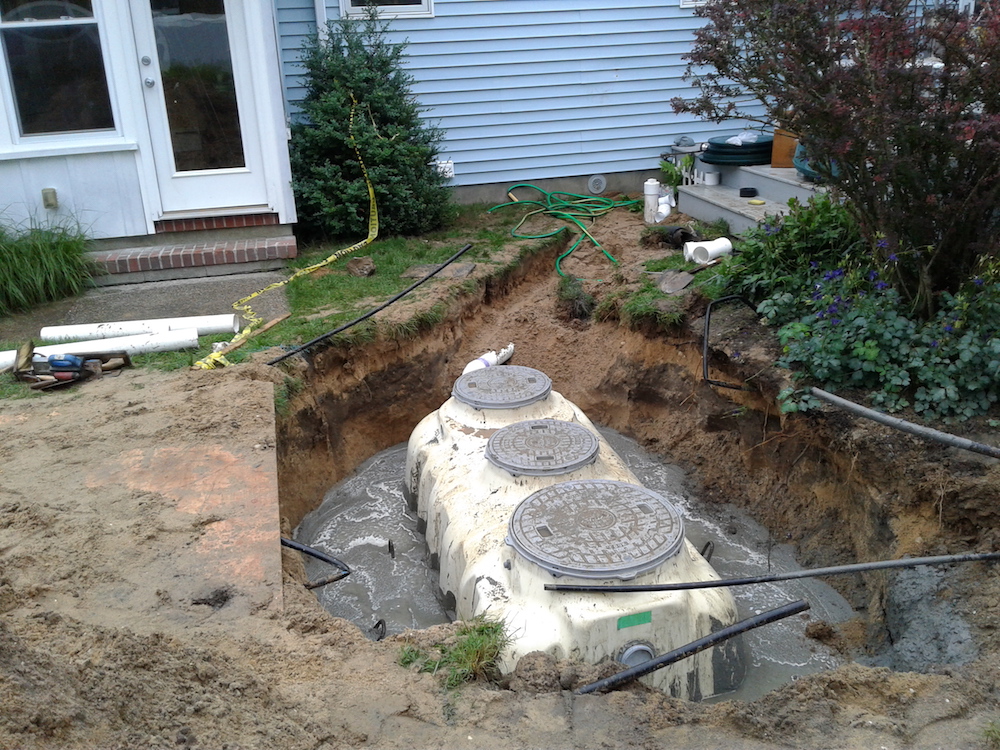In the world of wastewater management small septic systems often referred to as alternative or innovative systems for septic, are emerging as a viable option for homeowners with limited space or challenging terrains. These systems optimize the area, adapt to different soil types and offer the efficient disposal of waste, while preserving groundwater. Let’s explore the intricacies of these systems, their benefits and the latest technologies they utilize.

Small Septic Systems: They are essential
Installing traditional septic tanks, that require a substantial amount of land, is a problem for homeowners with small lots. In these situations, simply opting for a small septic tank may not suffice to handle household wastewater efficiently. Smaller septic systems that are fully designed will address these challenges by offering sophisticated and effective solutions that are space-efficient.
Alternative Septic Systems For Small Lots
Optimized Space Utilization: One of the standout features of septic systems for small areas is their compact design which enables them to be installed within small areas. These systems are especially useful for those who have smaller areas because they don’t require the same amount of land as traditional septic tanks.
Advanced Waste Treatment Alternatives septic makes use of cutting-edge technologies to provide superior waste disposal. For instance aerobic treatment units (ATUs) introduce oxygen into the treatment process, promoting the growth of aerobic bacterium that break down organic matter faster than the anaerobic bacteria that are found in conventional systems.
Environmental Security: These systems are developed to protect the environment by preventing contamination of groundwater. The use of modern treatments, and the meticulous design of drainfields, ensures that wastewater treated by these systems is purified and filtered prior to its ability to be returned to the natural environment.
Adaptability for Diverse Soil Condition: Alternative septic system are versatile, and can perform effectively in a vast variety of soil conditions. They can be used in diverse geographical areas and environmental conditions due to the fact that they are adaptable to different conditions. For more information, click Alternative septic systems for small lots
Different types of alternative Septic Systems for Small Lots
Aerobic Treatment Units (ATUs): ATUs make use of oxygen to improve the breakdown of organic matter in the water. These units are ideal for small areas because of their small size and superior capability to treat. They’re especially effective in areas where environmental regulations are a strict requirement, since they produce superior effluent.
Sand Filters – Sand filters treat and filter wastewater by layering sand. They’re a good choice for those who live in areas with poor soil for traditional drain fields. The sand layers work as a filter system to take out pathogens and contaminants before wastewater is discharged.
Pressure-Dosed Drainfields : With pressure dosed systems, water is pumped periodically into the drain fields to assure a consistent spread and absorption. This method is highly effective when it comes to small quantities, as it prevents soil saturation and enhances the overall efficiency of the treatment process.
Constructed Wetlands Constructed wetlands resemble natural processes in wetland ecosystems to manage wastewater. These wetlands consist of vegetation layers and soil which purify and filter effluent. These systems are designed for small-scale areas and are eco-friendly. They also provide aesthetic and functional benefits.
Mound Systems are drainfields that are elevated that are constructed above the soil’s surface. They are useful for areas with low or high bedrock, as well as elevated groundwater levels. The inherent filtration capabilities of soil layers and sand within mound systems allow for effective treatment.
Alternative Septic Systems
Speak with a specialist before selecting the best alternative for septic treatment for a small home. They can determine what the requirements are of the property and recommend the most suitable option. To determine which septic system is best, it’s important to consider factors such as the type of soil, the dimensions of the lot, local regulations and environmental conditions.
Conclusion
Alternative septic systems for small spaces offer innovative and sustainable solutions for water management in areas with limited space. These systems offer homeowners green and efficient options to manage household waste by incorporating advanced technology and adapting them to various soil conditions. These systems are created to efficiently treat waste and safeguard the environment and the home of the homeowner regardless of the terrain or space limitations. Innovative small septic system that blends utility, efficiency and sustainability is set to revolutionize wastewater management.